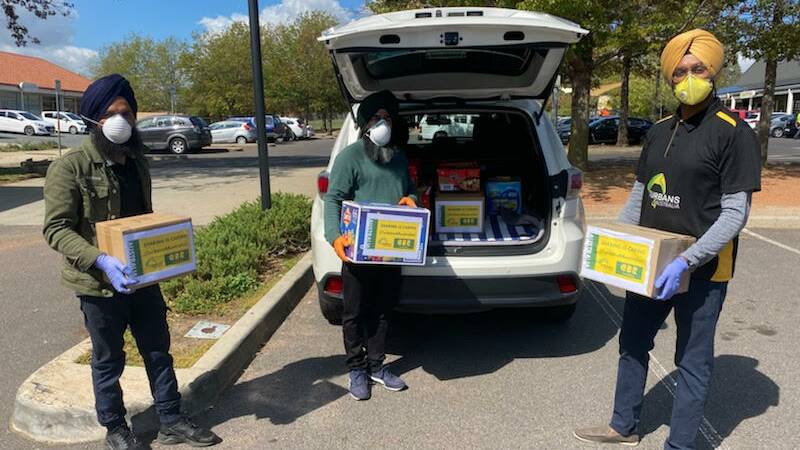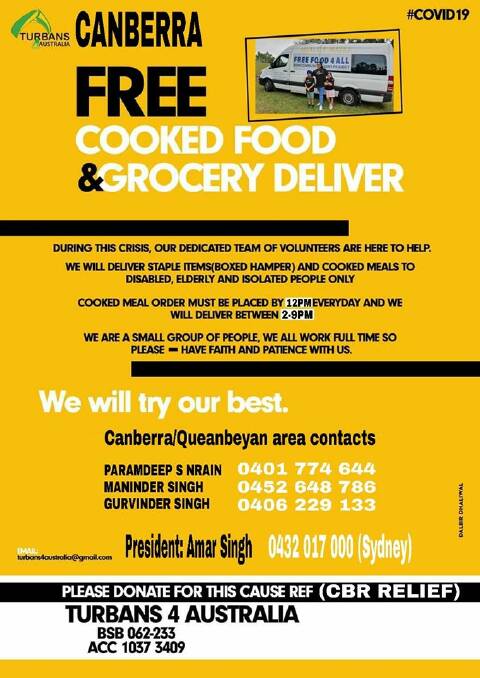
A Sikh charity is giving a multicultural twist to the old Australian tradition of mateship. Paramdeep Singh Nrain, Maninder Singh, Gurvinder Singh, and their team at Turbans 4 Australia are bringing food and supplies to the needy during the pandemic.
Subscribe now for unlimited access.
$0/
(min cost $0)
or signup to continue reading
For the last three weeks, they have delivered 50-odd hampers of free vegetarian meals (lentil curries and rice) and groceries (non-perishable staples like jam, coffee, sugar, noodles, and soup) to disabled, elderly, and isolated households and international students in Queanbeyan and Canberra.
"We feel proud to help each other at a time like this," Mr. Nrain, the charity's Canberra-co-ordinator, said. "People have told us we're doing exactly what Australian mateship is about... It's about mates helping mates."
From a Sikh perspective, selfless service (or seva) is a vital part of their religion. "Serve humanity; serve every single person you come across - not just one community or race," Mr. Nrain explained.
Mr. Nrain began sharing food while living as an international student in New Zealand. He moved to Canberra in 2013, and has worked with Turbans 4 Australia for four years.
The organization, set up in 2015, aims to eliminate fear surrounding cultural and religious diversity while promoting Australian values of egalitarianism and mateship. They have brought groceries and hay to drought-affected communities, raised money for cyclone victims, and helped renovate a community hub.

During the summer bushfires, Mr. Nrain and other members of the Canberra Turbans 4 Australia team delivered relief hampers to Cobargo and Ulladulla on the south coast. In this pandemic, he has travelled as far as Yass to deliver a hamper to a single family in isolation.
Mr. Nrain and Messrs. Singh originally cooked food from home; they now work from the kitchen of the Indian Pantry restaurant in Florey. For community safety, they have made the kitchen contactless. One team packs the meals; another delivers them.
They wouldn't have been able to do their work without the help of the community. Every day, they receive on average 15 messages thanking them, encouraging them, donating groceries, or even signing up as volunteers.
"I thank each and every one who has stepped up, especially the donors who have put their trust in us," Mr. Nrain said.
The number of volunteers has grown from three to more than 30 - not only Sikhs, but Muslims and Australians, many of them former international students become permanent residents or citizens.
"I think we always have to give back to the community that has given us so much," Mr Nrain said.
Contact Paramdeep S. Nrain (0401 774 644), Maninder Singh (0452 648 786), or Gurvinder Singh (0406 229 133). Donations welcome: BSB 062-233, ACC 1037 3409.


